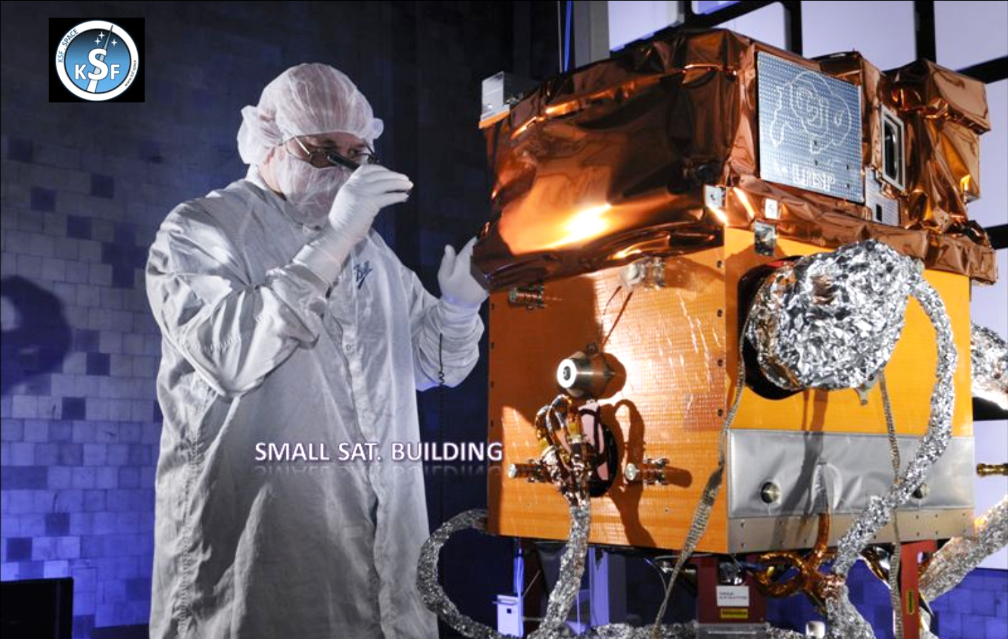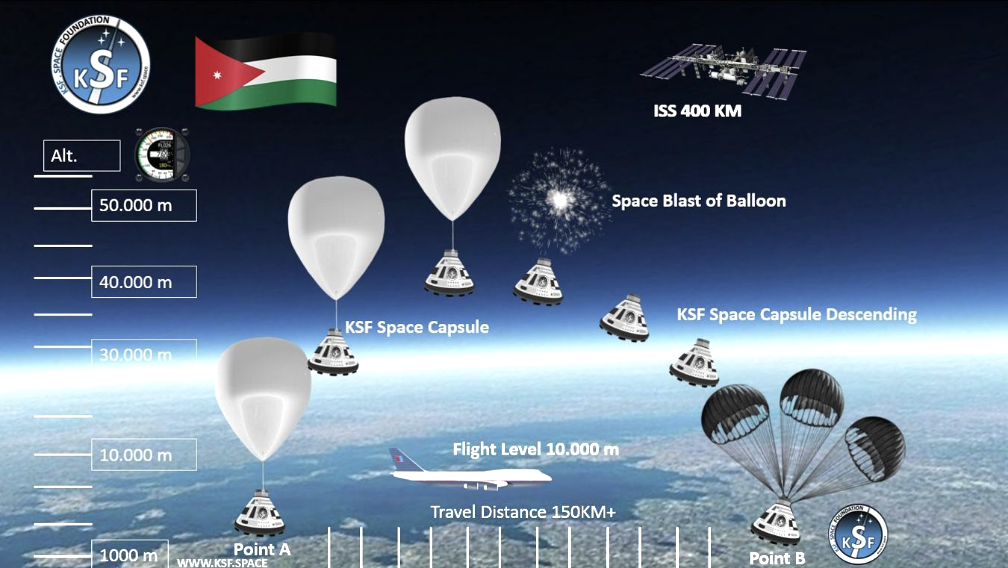
KSF Space Foundation has announced that the Kingdom of Jordan will be the first in the Middle East and North Africa to send living microbiology and bacteria cells to space with KSF Space’s next mission, which is scheduled for June of 2021.
Yarmok University in Jordan will be the leading all of the universities in the MENA region to approach this experiment. The mission will be unique and distinguished due to the challenge and the expected results upon the mission completion.

Prof. Hanan I. Malkawi, a professor at Biological Sciences Dept. at Yarmouk University in Jordan (PhD) in Microbiology & Molecular Biology from Washington State University-USA, has been heavily involved in research in biotechnology and nanotechnology and their applications in environment, health, agriculture and microbiology). She is directing the experiment and the project and stated that this project would culminate in extraordinary results and will help us understand the behavior of living bacteria in space.
The mission will be carried on a small space capsule which was made by KSF Space Foundation. The nose of the capsule will be hosting the bacteria cells in a chamber, while the rest of the capsule will carry 5 smallsats from five countries. This mission will be flying from the UK using a zero pressure space balloon and will reach near space.
Bacteria are part of every human ecosystem and the long-term colonization of space will require better understanding of how beneficial and harmful bacteria respond to microgravity and grow in space as well as how different species of bacteria change their growth and physiology in microgravity. The process of getting an experiment packaged, prepared and certified for flight on the KSF Space Capsule is unique and nontrivial.

“The purpose of the project is to better understand how bacteria respond in very weak gravity, which could possibly lead to better bacterial control mechanisms in space. These mechanisms could prove invaluable to maintaining both human and machine health aboard long-term spaceflights,” said Dr. Kayyali, Chairman of KSF Space.
KSF Space Foundation was initially founded to enable cost-efficient access to LEO with zero-environmental impact flying solutions. The foundation offers access to near-space and LEO for research and scientific experiments in many fields, as Earth or Space Observation, biological testing, satellite positioning detection, earth magnetic field measurement, radio transmit, atmosphere science and technology experiment. KSF Space announced the world’s cheapest CubeSat that is affordable to universities and schools. In addition, KSF Space Foundation also announced the launch of the world’s first NanoSatellite Engineering Professional “NEP Certification” for space education and the space industry.
